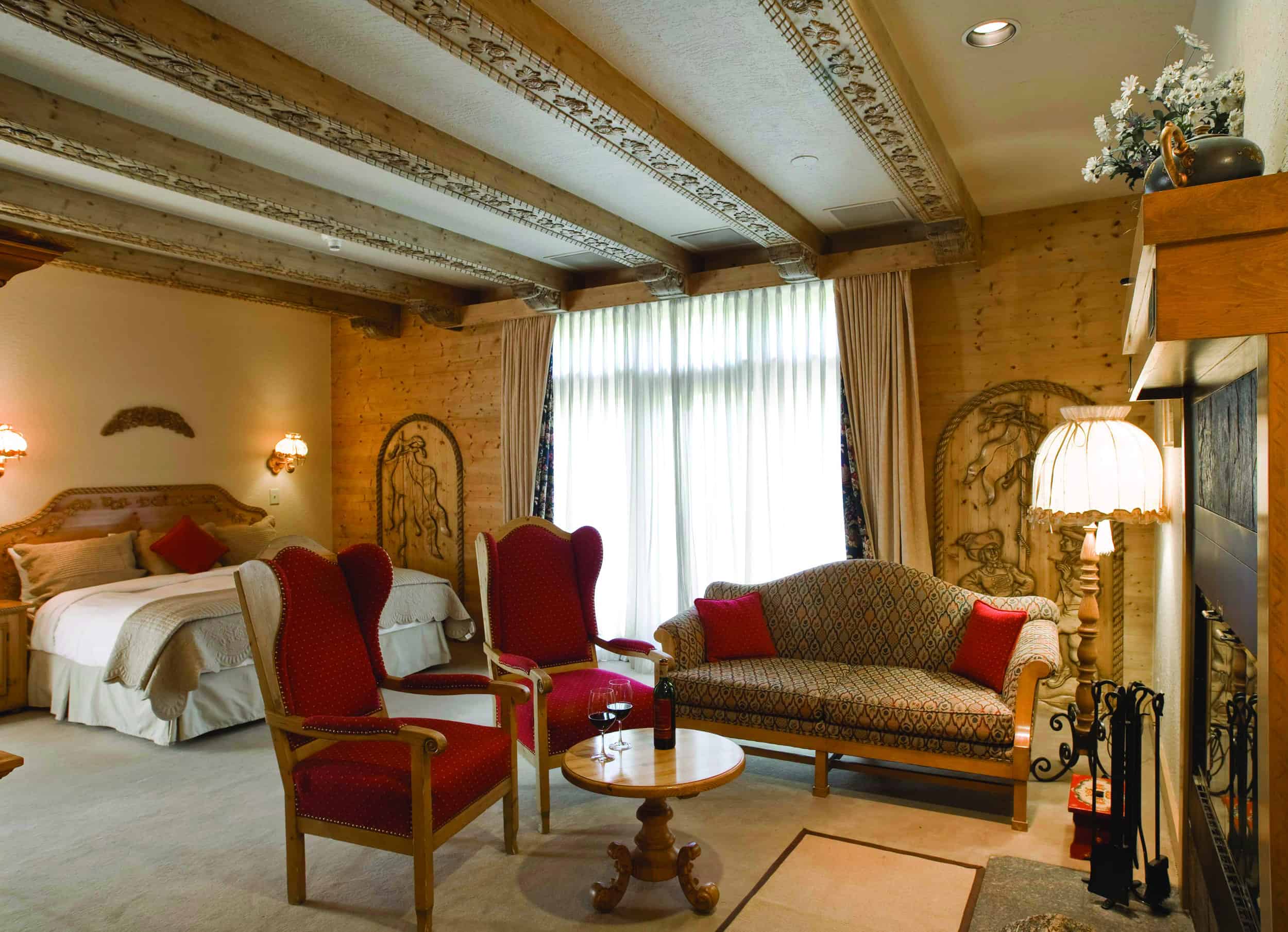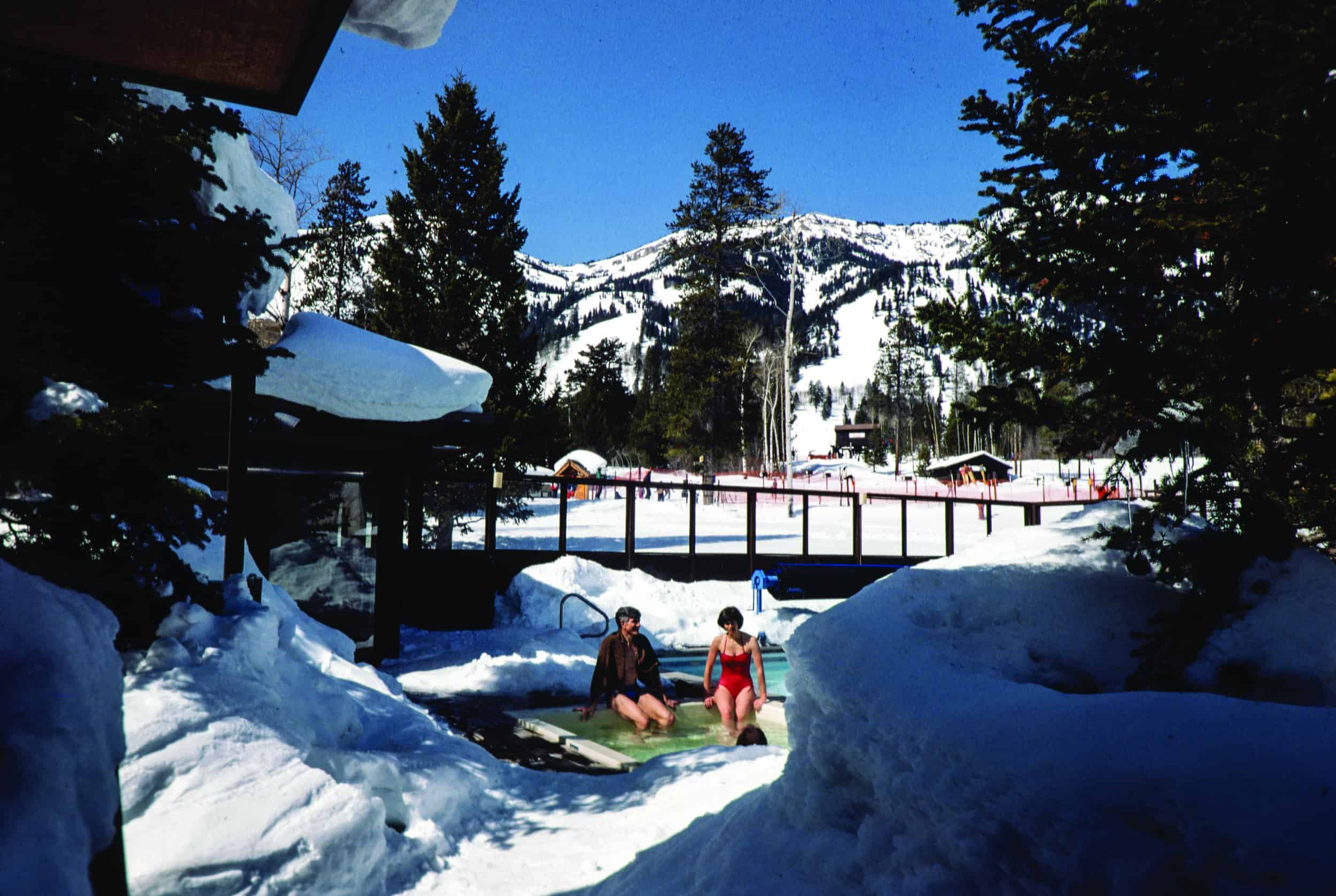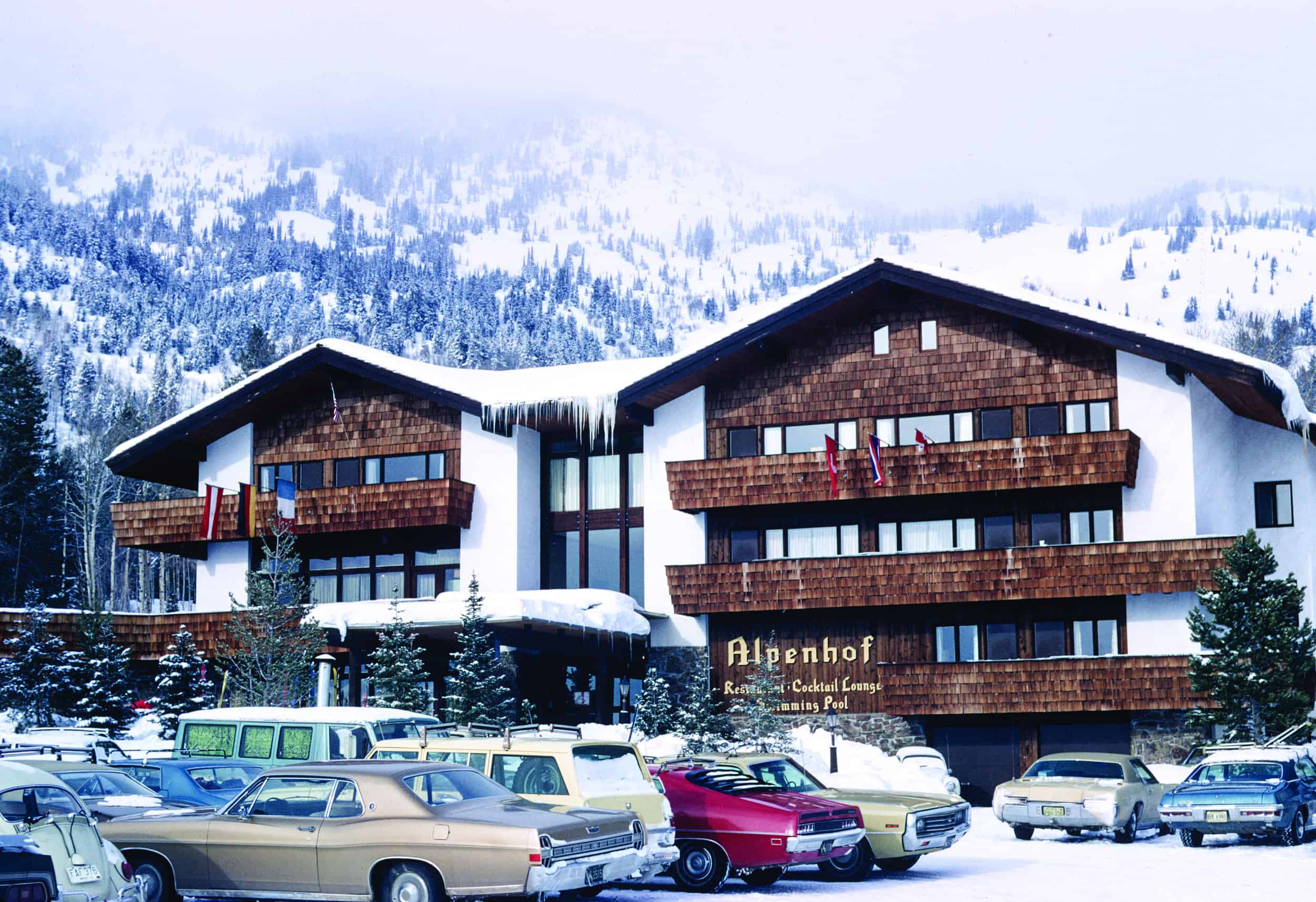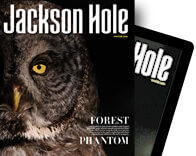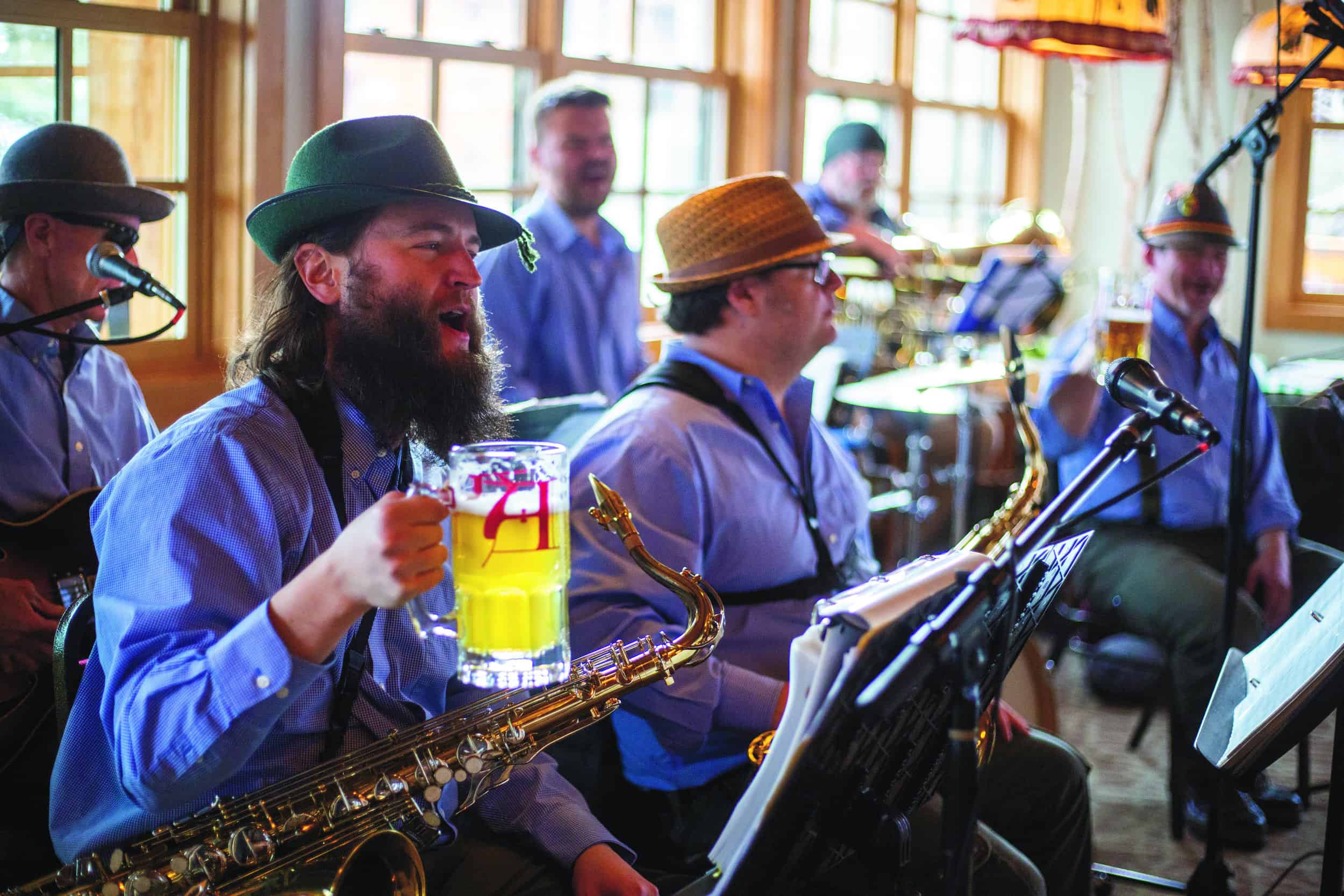Read The
Current Issue
The Alpenhof
This Teton Village lodge provides all the cozy creature comforts you’d expect from a European ski chalet.
// By Tibby Plasse
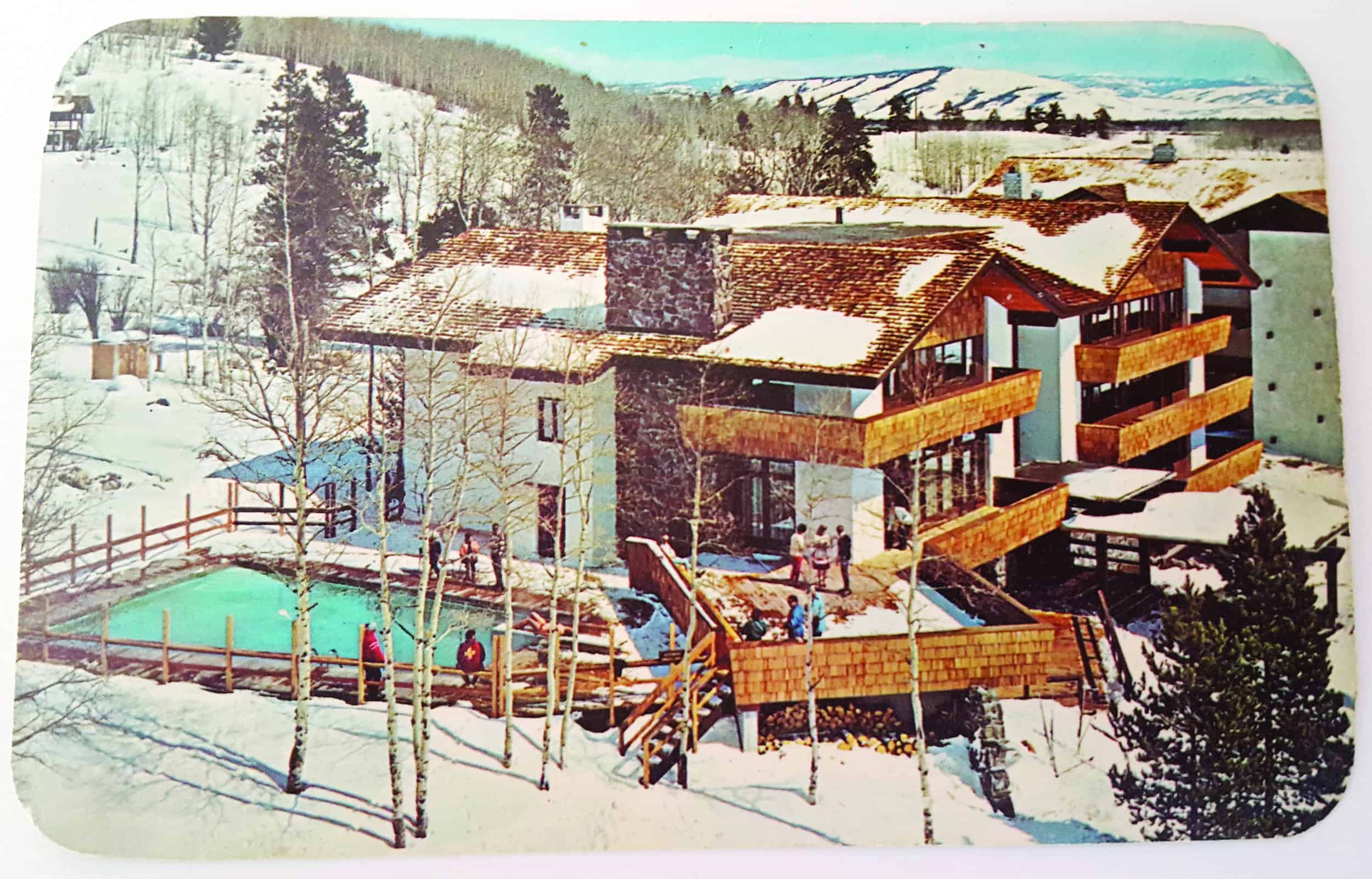
No cows with bells will greet you at The Alpenhof Lodge in Teton Village, but basset hounds do bound out from beneath an array of European flags to welcome you to this Tyrolean-style hotel. At check-in here, you’re handed a ceramic key ring, not a plastic card. You’re shown the ski locker, a communal wooden room off the lobby, where you store your gear alongside fellow guests who are also enjoying the ’Hof’s European ways. These European ways also include alpenhofffrühstück für hausgäste—aka breakfast for lodge guests—eaten beneath Austrian-influenced painted ceilings in the lodge’s Alpenrose restaurant. (The Alpenrose serves breakfast, lunch, and dinner to guests and the public daily.)
“Our mission is six words—smiling faces, cozy rooms, hearty food,” says Mark Johnson, the lodge’s long-time manager and father to the basset hounds. “You can’t find a better breakfast in Teton Village, or maybe anywhere in Jackson.” The only thing that Alpenhof guests rate anywhere near as highly as the breakfasts are the lodge dogs—currently 13-year-old Lucy, a golden retriever-basset hound mix; and Bea, a basset hound. The Hof’s first dogs, golden retrievers Sam and Molly, arrived at the lodge in 2001. “There has never not been a dog here since,” Johnson says.
The Alpenhof Lodge is one of the last representations in Teton County of the European influence that dominated the rise of the ski industry in the U.S. in the 20th century. In 1965, when Dietrich and Anneliese Oberreit bought lot 2 in the small village coming together at the base of what is today Jackson Hole Mountain Resort, they envisioned a European-style “ski haus” both in terms of architecture and amenities. Ski enthusiasts who had dreamed of running a lodge that would honor their Swiss and Bavarian roots, the Oberreits didn’t have any experience in the hospitality industry, so they took correspondence courses in hotel management. To ensure the lodge looked right, they made a case study of what an Alpine experience could be in Wyoming and used that to inform The Alpenhof’s carved and cut-out balconies and deck balustrades, custom furniture, and the Swiss-German vibe of the rooms, which is enhanced by quaint décor and painted walls.
In 2016, 61 years after it opened its doors to its first guests, The Alpenhof was placed on the National Register of Historic Places. It’s not just the lodge building that has serious history. “Everyone in town has worked for us at one point,” says Johnson. “I would say we’re in the running for some of the longest-running staff in town. Gail, our housekeeper, has been with us for 20 years.” Guests feel the same way. “The hotel has guests that have been coming for 40 years,” Johnson says. “It’s a traditional Alpine experience, and you can’t find that anymore.”
The Hof creates a European feel not only with its architecture and décor, but also with what’s on tap and on the menu. Few, if any, other places in Wyoming have a mug club that’s served in steins, liters of Franziskaner and Steigel Grapefruit Radler on tap, fondue, apfelstreudel—apple strudel made from a house recipe that includes cranberries and almonds and is served with crème Anglaise—and a polka night every Wednesday the deck is open. The latter, one of the most enduring events on the West Bank, grew out of a bet between friends. Johnson explains: “Local musician Peter Chandler, who we all know as Chanman and for his reggae, well I bet him one night that he couldn’t play polka—and he has certainly proved me wrong.” alpenhoflodsge.com JH
